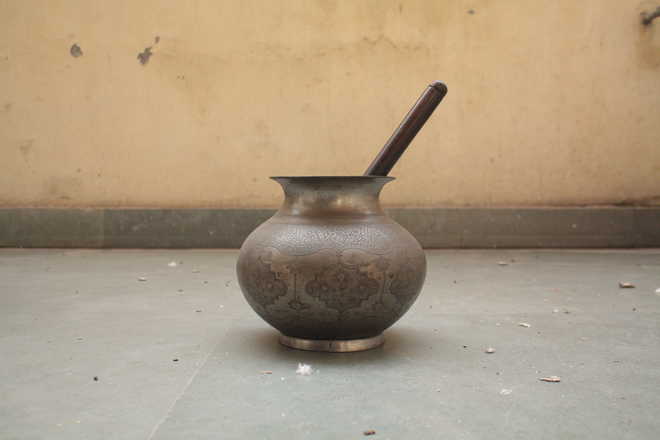
Keepsakes: The tangible tokens of a bygone era which the refugees were able to bring with themselves
Suparna-Saraswati Puri
When an attempt is made to glance over the past, quite often a process is initiated to realise and rediscover a great many things still relevant to the present. Regarding the great divide that was Partition, there is a perhaps, a significant number of people who are of the opinion that ‘India was partitioned because it was partitionable.’ However, without meandering into the discourse on the subject, reference to the statement is made here in the context of viewing the event (Partition) through the prism of archival memory. With an expanding periphery of literature on the Partition, how does an addition like Remnants of a Separation: A History of the Partition Through Material Memory stand out as a distinct text? For starters, the book provides a refreshing perspective about the event through the eyes of some one who is under 30 year, and a first-time author. It is a seminal piece of work indicative of an un-learning of the clichéd rhetoric on the genocide that has intellectually imprisoned generations of Indians and Pakistanis alike.
Given the fact that ‘a person’s actual identity is often hidden in his overall experience’ Remnants of a Separation inquires into the working of minds and souls of all those people who experienced the historic dislocation. It speaks of roots; a sentimentality that breathes in innate belongings that evoke a sense of who we are and where are we, as a consequence of the divide. The book is encompassing in its intent and dealing of the subject (Partition). Painstakingly researched over four years, Aanchal Malhotra’s book is a unique volume of touching stories that “weave together a cohesive narrative of personal experiences vis-à-vis the past as well as the present.”
A noteworthy aspect of the book lies in the fact that the author’s narration is unbiased in terms of taking sides — here is a voice that illustrates “images morphed into language”. As she writes in the Introduction, “During my time in Pakistan for the research I conducted for this book, Lahore embedded itself into the same place in my heart otherwise occupied by Delhi. There was no sense of homesickness or unfamiliarity. On the contrary, its streets seemed to be alive with the same history as the streets of Delhi.”
The select protagonists of these stories of inexplicable pain and suffering, of undying hope and humanity, of unimaginable struggle and survival, of irreplaceable loss and love are wide-ranged. Some of which include a gaz, a ghara, a maang-tikka, a pocket knife, a peacock-shaped bracelet, a set of kitchen utensils, a bagh, a set of sepia-toned photographs, a necklace of rare Basra pearls. Interestingly, for a first-time author handling a contentious subject like the Partition, Malhotra succeeds, rather brilliantly, in allowing the reader to explore subtle indicators of the kinds of socio-political maladies born from the debris of the carnage that took place seven decades ago. The book lays bare the author’s transition from an artist to a seasoned antiquarian engaged in balancing the weight of accumulated and often contested memories of victims of the batwara, on either sides.
In Remnants of a Separation “memorialisation is not a passive practice but an active conversation” that opens new doors to the past. The author skilfully maintains ‘the preservation, clarification and respect of memory’— all of which are crucial for ‘preserving the integrity and sharpness, not just of the individual mind but also all of the collective consciousness of an entire culture.’ Indeed, the book is a must read.



























